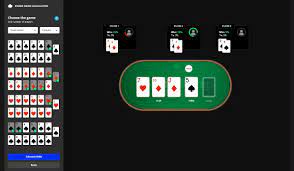Calculating the odds in poker can be a little bit of a hassle. That’s because the amount of cards being dealt is not always evenly distributed. The number of cards in a deck you can deal, the number of players, the range of cards in play, and the total number of players all factor into the amount of easy or hard to hit combinations your hand will have. Now let’s say you have four aces in your hand and there are six players at the table. That makes 6/40, or 8.6 percent, of the possible combinations you can have. Your odds are 8.6 to 1 against making a straight. That’s the problem.
Now let’s take that very same hand and compare it to our eight number simple example. The odds are 6/40 or 2.65. So now we have a problem. The total amount of squares on the table is forty-two. That means we have 6/40 * 2.65 = 3.2 square feet on the table in total.
If our opponent bets more than we do, we should fold. But if our opponent checks, we should call because we’re ahead. When we check, we’re usually behind, but not always. Sometimes we’ll hit a straight and double our winnings. Now that we have a better hand, and feel better, we should bet aggressively.
Why? Because our opponent may be playing with the estimate of having a strong hand. Now, he may indeed have a strong hand, but he may also be playing with a small stack and is just drawing out. Why? The opponent has too many cards now to play with a medium hand, so he might bet with a weak hand, such as JQ suited or even something like that.
Why don’t we go out and beat this monster hand right now? We don’t have to eliminate all of the other hands that could beat us. We don’t have to eliminate the chances that our opponent to have a really strong hand. We don’t even have to eliminate the possibility that he may be bluffing. How many times have we tried to play strong pocket pairs, only to get run over by someone with a bigger pocket pair? How many times have we mentally handicapped the situation and costing ourselves a lot of money?
In our Analyzing The process of analyzing is an important part of playing QQDewa well. While we may have a very strong hand, in the end, our opponents may have a stronger hand, too. We call that hands like QQ against AA or JJ, JJ specifically, JJ2, and AA specifically. In these cases, we have very few outs with the AA or JJ. We know that if we go out, we’ll have to win two out of three pots, which doesn’t happen most of the time.
Therefore, if we bet enough, we may pick up a call or two on the flop and if we’re called, we may win the whole pot with the best hand. Now that we have a better hand, we can protect our hand better. We call what we think is the best hand and once we’re raised, we fold.
The idea is to win as many pots as you can out of small increases each time you’re called. The idea is to always protect your hand when possible, in order to make less expensive decisions later.
So, getting back to your AA or JJ, lets see what your opponent’s reaction to your raise might be.
If they have a tight player, they will probably just call with hands that would be unprofitable to call a raise with, hands that have less thenFresh air in them. You can narrow their hands down further. If you’re sitting in late position, and the tights have limped in ahead of you, you can limp in as well, possibly setting up a bluff on the flop.
If they’re loose, they’ll call your raise as tight players tend to, unless they’re extremely aggressive. You can steal the pot with a continuation bet after the flop, and if they call, you’re set to get nasty and beat them with some sick hands.
If they’re weak, they’ll call your raise unless they have a really strong hand. Just make sure you get a lot of money in the pot first, as they’ll generally show a weak hand and try to protect. If you’re in early position and no one has raised in front of you, you can limp in cheaply and BOOM, you’ve just set yourself up for aigueth strugging hand.




